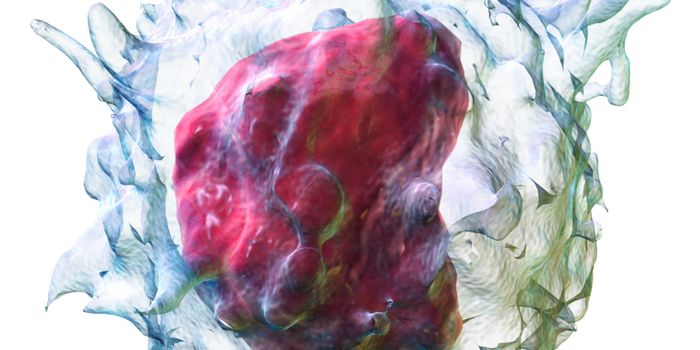Clinical Trial of Combination Therapy Extended Life After Glioblastoma
When researchers used the drug temozolomid in combination with short regimen of radiation therapy in older patients with malignant brain cancer, survival was extended by two months, when compared with treatment using radiation on its own. The results from this clinical trial were reported in the New England Journal of Medicine; they are outlined in the following video.
For 45% of patients involved in the study, improved survival almost doubled, from seven months to 13.5 months, explained co-principal investigator Normand Laperriere, who is a radiation oncologist at Princess Margaret Cancer Centre, University Health Network. The outcome has been linked to a molecular indicator that shows whether a DNA repair mechanism that acts against the drug was active. If that mechanism gets turned off, tumors were more responsive to treatment.
"Everyone benefited to a varying degree and the study confirmed the predictive nature of the molecular marker in the largest sample to date where the status was known. We anticipate this combined therapy will be the treatment strategy broadly adopted around the world for patients 65 and older because it makes a significant difference in the course of this terrible disease," said Dr. Laperriere, who is also a Professor in the Department of Radiation Oncology, University of Toronto.
The trial was done in collaboration with investigators Dr. James Perry, Sunnybrook Health Science and Odette Cancer Centres, Toronto, Dr. Christopher O'Callaghan, Canadian Cancer Trials Group, Kingston, ON, and international collaborators from Europe, Australia, New Zealand, Japan.
Over several years, 2007 to 2013, the randomized Phase III clinical trial involved 562 patients with glioblastoma, the most common malignant brain cancer in adults. This devastating cancer has an average onset age of 65 and there is no cure. In aging societies, glioblastoma incidence is increasing. In the trial, the patients had an age range of 65 to 90, while two-thirds of those were 70 or older.
Though two previous studies have investigated the action of the drug on its own or the role of radiotherapy by itself in treating glioblastoma, this is the first study that characterizes the effects of the therapies in combination.
"There has been no clear standard of care for treatment of glioblastoma in the elderly," explained Dr. Laperriere. "For patients under 65, the protocol is six weeks of radiation therapy plus the drug, but this regimen is poorly tolerated by older patients."
Temozolomide is a very well tolerated oral chemotherapy drug. There were no differences in quality of live among participants in both arms of the study. "The drug is so well tolerated, there is no downside in administering it to all glioblastoma patients,'' said Dr. Laperriere. "Thankfully in such a terrible disease, at least we have therapies that are easy on the patient and easy to take."
Sources: AAAS/Eurekalert! via UHN, New England Journal of Medicine








